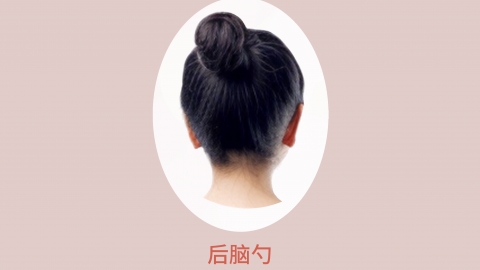What causes pain in the back of the head when opening the mouth?
Generally, pain in the back of the head when opening the mouth may be caused by lack of sleep, mental stress, trigeminal neuralgia, temporal arteritis, cervical spondylosis, or other reasons. It is recommended to seek timely medical consultation at a hospital to determine the specific cause and receive appropriate treatment. Detailed explanations are as follows:

1. Lack of Sleep
Long-term staying up late or poor sleep quality may lead to sleep deprivation, which can cause symptoms such as fatigue, dizziness, and headaches, including pain in the back of the head when opening the mouth. It may be accompanied by low spirits and difficulty concentrating. It is recommended to maintain a regular sleep schedule, create a quiet and comfortable sleeping environment, and avoid using electronic devices before bedtime.
2. Mental Stress
Long-term mental stress may result in excessive brain fatigue, leading to symptoms such as dizziness and headaches. The pain in the back of the head may worsen when opening the mouth, and may be accompanied by fatigue, anxiety, or depression. It is recommended to relieve stress through outdoor activities such as walking or hiking and to breathe fresh air.
3. Trigeminal Neuralgia
Trigeminal neuralgia is a type of severe facial pain caused by damage or compression of the trigeminal nerve, which may be triggered by factors such as vascular compression, tumors, or demyelinating diseases. When opening the mouth, movement of the facial muscles may stimulate the damaged trigeminal nerve, causing intense pain that sometimes radiates to the back of the head. Patients may follow medical advice to use medications such as carbamazepine tablets, gabapentin tablets, or phenytoin sodium tablets to alleviate the pain.
4. Temporal Arteritis
Temporal arteritis is caused by inflammation of the walls of the temporal artery, which supplies blood to the head and neck. The inflammatory response can affect blood flow, resulting in local ischemia and pain, especially during actions such as chewing or opening the mouth. It may be accompanied by symptoms such as fever, weight loss, and scalp tenderness. It is recommended to follow a doctor's guidance and use medications such as prednisone tablets, methylprednisolone tablets, or cyclophosphamide combination tablets for treatment.
5. Cervical Spondylosis
Cervical spondylosis is a condition caused by degeneration of the cervical intervertebral discs, bone spur formation, or narrowing of the intervertebral foramina. When cervical spondylosis affects the cervical nerve roots, it may cause pain in the neck and head. When opening the mouth, movement of the neck muscles may exacerbate the compression of the cervical nerve roots, resulting in pain in the back of the head. It may also be accompanied by symptoms such as neck stiffness, shoulder pain, and arm numbness. It is recommended to follow medical advice and use medications such as chlorzoxazone tablets, eperisone hydrochloride tablets, or naproxen sodium tablets to relieve symptoms.
It is also recommended to maintain good sleeping posture in daily life and choose a suitable pillow to keep the neck and head in a comfortable position, which can help alleviate the pain.





